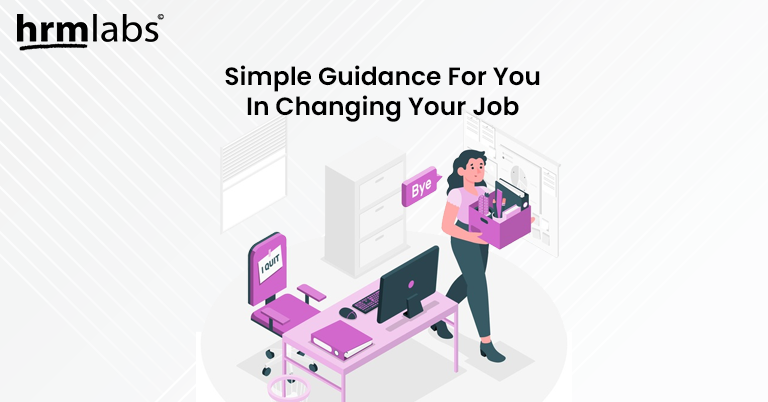Changing job is difficult especially when you are already comfortable with what you do. According to several career experts, you need to plan to change your job regularly every few years. Even when you already like what you do and feel comfortable. Change is difficult, but the benefits might pay off in ways you never imagined possible.
Statistics have long suggested that working professionals will have up to seven careers in their lifetime. However, we can’t completely agree with this one because there is not much substantial research that could back that figure. Also, it becomes less relevant in our current job-hopping work climate.
When the job market is strong and opportunities are plentiful, it’s so tempting that other jobs elsewhere are better. But with the current COVID-19 situation, it might seem unlogical for you to think about changing your job.
There is no one exact formula for making the right career move. Especially during crisis time, there are three additional elements that play important role in the job market.
- Crises produce stress and anxiety, which limits our ability to make calm and rational decisions.
- It increase uncertainty and volatility, so it is more difficult than usual to predict the future—both short and long term.
- Crises also limit current opportunities. Most employers are in damage-control mode, worrying more about self-preservation and cutting costs than driving growth and hiring new talent.

But why professional workers change their job?
Why Professional Workers Change Job?
Based on Joblist’s Midlife Career Crisis survey, the top five reasons people change job are:
- Better pay: 47%
- Too stressful: 39%
- Better work-life balance: 37%
- Wanted a new challenge: 25%
- No longer passionate about the field: 23%
When people change their job, they tend to be
- Happier: 77%
- More satisfied: 75%
- More fulfilled: 69%
- Less stressed: 65%
Also, people who changing job were making more money than their last job. Other reasons why professional workers changing job are:
1. Getting Bored
Admit it that as a professional worker, you want to be busy all day working. Not to the point that you feel overwhelmed and overworked of course. Also, the work you are doing should be challenging and interesting. But if you don’t feel that your current job is challenging or interesting, you might get bored and consider changing job.
Also, if there are too many tasks, employees tend to work more hours and can disturb their work-life balance. This could lead to burnout and lack of motivation to work. Even a good professional worker can encounter roadblocks when they asked to take more tasks which can result in boredom. Especially when they are not given enough guidance.
2. Bad Relationships
In professional life, we always communicate with our manager or boss. But if there are issues with communication, it could seriously affect your professional life. When you are working on a project and have different opinions that you both can not compromise, it will affect your professional life badly. Also, if you feel undermined or undervalued, it could lead to a bad relationship with your manager or your boss too.
In fact, a bad relationship with the manager found in the reason why professional workers change their job. Managers need interpersonal communication and technical skill to do their job properly. However, sadly not all managers have these skills or have the time to learn. Many managers do not give necessary feedback or coaching to their employees, instead, they yell and scream at the employees that they supposed to guide. In addition, if the managers do not give clear expectations and goals for their employees, can lead to frustrated employees and make them want to leave the company.
3. Poor Working Conditions
A lot of professional workers are considered about how their working condition is. If the working condition is good, they might stay at their job. But in contrary, if the working condition is bad, they might have a consideration on changing job. If you feel that you are afraid to speak out your ideas during the monthly meetings because your team members or your manager usually undermine you, it’s a good sign to change your job. After all, who wants to work in such poor working conditions with people who do not appreciate you, right?
But remember that there is no ideal workplace. Your personalities and your team members’ personalities do not always blend. In every company, there are always some clashes, interpersonal conflicts, office gossip, sly bosses, attention-seeking colleagues, and inconsiderate co-workers. These could turn into the reason why someone quits their job and look for another opportunity.
4. Bigger Opportunities
Everybody likes to have a clear career path. Obviously, it doesn’t feel good to have a stuck career path that takes you to nowhere. If your current manager or company doesn’t have a clear career path for you, then try to ask for it including what training do they have for you. If they don’t provide the answer, consider looking for another job opening with a clear career path. You need to always learn for your professional development.
Also, many professional workers change their job because they feel that their current company doesn’t provide them with a good salary. If there is a new opportunity that offers a better salary and a clear career path along with professional development, they tend to consider changing job.
5. Lack of Benefits
Who wants to work 8 hours a day without being recognized for their hard work or have good benefits beside their salary. When a company fails to provide benefits for the employees and let the employees go unrecognized for their hard work, it can reduce employees’ loyalty.
Failed to provide benefits can make employees feel demotivated to do their work. Also, when employees’ hard work does not get recognized by the company, they can feel that the company does not care about them. This could lead to the reason why employees changing job.

Guide For Changing Job
Before you decided to change your job, consider answering these questions first.
- How often you feel stressed and tired?
- Do you still believe in the company?
- Do you still feel satisfied with your current job?
- How much workload you can take?
- Does this role enable the lifestyle I want?
- How are your skills match up to your personal interest?
- Are you still feel acknowledge?
- Is there any job options that match your skills and interest?
- Does the culture of the organization match my personality?
- Can the new job help you to become better in your skills?
- Does this job align with my areas of interest?
- How is the career path in the new job?
- Does this role use my portfolio of strengths?
- Why do I want to change job?
- Which job has more professional advancement?
- How will switching jobs affect my professional relationships?
- Will I be paid enough?
- How long is the commute?
- What kinds of benefits are there?
It is important to answer those questions to know better whether you need to change your job or not. Because changing your job requires good planning. You don’t want to regret resigning from your current job and change your job elsewhere, right?
In addition, The Balance Careers have tips to successfully changing job.
:strip_icc():format(webp)/successful-career-change-2058452_Final-bc1b5a803fc34e259ffbaf110a3314f7.png)
- Evaluate your current job satisfaction. Keep a journal of your daily reactions to your job situation and look for recurring themes. Which aspects of your current job do you like and dislike? Are your dissatisfactions related to the content of your work, your company culture, or the people with whom you work?
- Assess your interests, values, and skills. Review past successful roles, volunteer work, projects, and jobs to identify preferred activities and skills. Determine whether your core values and skills are addressed through your current career.
- Consider alternative careers. Brainstorm ideas for career alternatives by researching career options, and discussing your core values and skills with friends, family, and networking contacts.
- Check out job options. Conduct a preliminary comparative evaluation of several fields to identify a few targets for in-depth research. You can find a wealth of information online simply by Googling the jobs that interest you.
- Get personal. Find out as much as you can about those fields and reach out to personal contacts in those sectors for informational interviews. A good source of contacts for informational interviewers is your college alumni career network. LinkedIn is another great resource for finding contacts in specific career fields of interest.
- Set up a job shadow (or two). Shadow professionals in fields of primary interest to observe work firsthand. Spend anywhere from a few hours to a few days job shadowing people who have jobs that interest you. Your college career office is a good place to find alumni volunteers who are willing to host job shadowers.
- Try it out. Identify volunteer and freelance activities related to your target field to test your interest e.g. if you are thinking of publishing as a career, try editing the PTA newsletter. If you’re interested in working with animals, volunteer at your local shelter.
- Take a class. Investigate educational opportunities that would bridge your background to your new field. Consider taking an evening course at a local college or an online course. Spend some time at one-day or weekend seminars. Contact professional groups in your target field for suggestions.
- Upgrade your skills. Look for ways to develop new skills in your current job which would pave the way for a change e.g. offer to write a grant proposal if grant writing is valued in your new field. If your company offers in-house training, sign up for as many classes as you can.
- Consider a new job in the same industry. Consider alternative roles within your current industry which would utilize the industry knowledge you already have e.g. If you are a store manager for a large retail chain and have grown tired of the evening and weekend hours, consider a move to corporate recruiting within the retail industry. Or if you are a programmer who doesn’t want to program, consider technical sales or project management.
Changing job is not easy especially if you already feel comfortable with what you are doing and already making friends with your coworkers. But, when you really need to change your job, don’t worry. A lot of opportunities with better job conditions will open for you. Try to follow the guidance above before you change your job. Good luck!



